In this blog, C Shambu Prasad and Deborah Dutta explain the need for initiatives that enable sustainable transitions in the agrarian context, and explore ideas that can kickstart the process.
CONTEXT
Green Revolution practices characterised by input-dependent, fossil fuel-driven, monocropping methods have adversely impacted ecological systems, while also pushing farmers into debt due to the induced dependence on external inputs for agriculture. The input intensity has deleterious effects on climate change with the agriculture sector being the largest consumer of scarce groundwater in India. To counter these trends, India has attempted, or initiated, several discussions and roadmaps towards sustainable food systems in recent times. These include policy directives to ‘Double Farmer Incomes’, the new ‘Vocal for Local’ and Atma Nirbhar Bharat, along with NITI Aayog’s vocal commitment to spearhead natural farming initiatives across the country. These initiatives should also shift the goals of food production and lead to some rethinking, even a reset in a few cases, of our food systems. As the Government of India readies itself for nation-wide food systems dialogues it might be pertinent to situate some of the discussions with alternative discourses for the future, especially following the Covid-19 pandemic.
ENABLING SUSTAINABLE TRANSITIONS
Among the many discussion starters, the United Nations and FAO’s Track 4’s is important for its emphasis on the key problem, namely, removing inequality and power imbalances. The need for equitable access to livelihoods and its fundamental connections with sustainable food production systems is well articulated. A fuller expression of these initiatives, however, cannot happen without a significant rethinking of the relations between producers and consumers in food systems.
We suggest that while many technical solutions exist, many more are being discovered by both researchers, practitioners and farmers there is a greater need for institutional reform to align organisations with these objectives or goals. In short, this entails a commitment to shift dominant paradigms of food production or better management of sustainable transitions. While most of the literature on transitions is focused on urban systems, India has the unique advantage of being in a vantage position to lead this transition in agriculture given both its knowledge and its large farming community. Here, we briefly discuss ten tips on how to enable sustainable transitions.
TEN GUIDING THOUGHTS
Reversing unsustainable practices
It would be futile to continue proposing alternatives, unless dominant, unsustainable practices are simultaneously curbed. This entails slowly dismantling the socio-economic and institutional arrangements that support such practices. Policy nudges that incentivise use of organic nutrients, multi-cropping systems, and cutbacks on pesticide and fertiliser subsidies could help level the playing field for alternate practices to become economically viable.
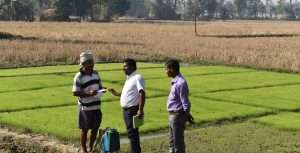
Recognising multiple pathways and constructive synergies
Rather than designing for a ‘one nation one everything’, or the grassroot version of a bad design, ‘one district one product’, it is imperative that plurality of approaches is encouraged. Food systems are often embedded in particularities of regional geography and a diverse set of practices that could include shifting cultivation, dry grain complex, natural farming, pre-monsoon dry sowing, regional water conservation methods and so on need to be fostered. Rather than following a blue-print approach of any particular alternate practice, it is important to acknowledge specificities and encourage regional adaption and innovation.
Promoting knowledge dialogue and interdisciplinary collaboration
Institutions that are supposed to foster such innovations in thinking and practice are often locked into old approaches of intervention. On the other hand, practitioners having the most valuable knowledge and experience may not exist within formal institutions and state-led extension services. These actors must be supported in explicit ways with formal institutional arrangements to enable transition into sustainable food systems. An example is the Odisha Learning Alliance, a network of multiple stakeholders who approached the problem of food security and its alternative, the System of Rice Intensification (SRI) together, and were facilitated to work across silos.
Partnering with civil society initiatives focusing on agro-ecology
Initiatives, such as APZBNF and the Odisha Millet Mission are examples of how governments can work with farmers and Civil Society Organisations (CSOs) to upscale substitutes by creating a critical pool of local resource experts and facilitating linkages with public distribution systems (PDS) or FPOs. Academic institutions need to see themselves as facilitators of knowledge dialogues and broker connections between diverse knowledge sources. Marginalised pioneers and creative dissenters within the establishment need to be recognised and supported in proactive ways. Networks have an important role in this.
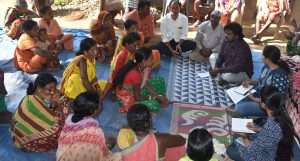
Strengthening local institutions
The sheer scale of expected transition demands dynamic, decentralised and situationally-responsive measures, none of which are possible through top-down bureaucratic channels due to the cost and time lag. Instead, local institutions need to be empowered and encouraged to form stable partnerships with grassroots organisations. Hyper-local market linkages and supply systems need to be built that can favour small and marginal farmers.
Strengthening adaptive capacities of vulnerable communities
Collective institutions need to be strengthened and invested in as they have the potential to address the critical issue of unequal power relations in the market. Building capacities of these institutions takes both investment and time, especially if they are to enable critical investments in capacities. Most vulnerabilities and shocks are responded to by enhancing the adaptive capacities of vulnerable communities.
Building a critically-conscious consumer base
Concerted efforts are needed to empower consumers to make conscious choices by supporting local agricultural initiatives. Critical awareness programmes and options can be designed to help consumers create demands that are ecologically responsive and offer fair prices to farmers. Across the world, many community-supported agriculture projects can offer interesting design insights. A small number of initiatives are also gaining popularity in the major metropolitan cities of India.
Governance structures to support small-scale urban agriculture
Rural and urban access to nutritious food can be increased by creating small kitchen gardens for family consumption. Integrated farming is also a promising avenue to supplement nutritional and income requirements, as documented in many case studies.
Reskilling in Agriculture
A neglected dimension of agroecology is its potential to reverse the continued de-skilling in agriculture and providing spaces for newer skills. The education system needs to be framed in ways that value practical skills and labour, as opposed to relegating them as vocational subjects. The artificial dichotomy between intellectual and manual labour has a role in creating livelihood aspirations and societal status. This should be challenged through systematic reforms in the curricula with a discerning approach so as to avoid being co-opted by other agendas. The Natural Farming Fellow in Andhra Pradesh is an excellent example of agriculture graduates finding their mojo by returning to farms and demonstrating newer skills.
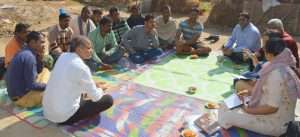
Rethinking food system goals
Finally, healing must begin by re-embedding local economies in ecosystems, increasing business accountability, and strengthening democratic structures. Newer health, economic and food system goals must be defined based on ecological wellbeing and success rather than abstract figures that are supposed to indicate GDP.
END NOTE
These ideas are not sequential but synergistic, and it is hoped that the renewed focus on food systems will help us rethink agriculture for a climate-stressed world. Operationalising these ideas requires creative facilitation of generative dialogues across different stakeholders and institutions. The wicked sprints by Socratus shows promise by applying practical systems thinking to collective problem solving. Managing sustainable transitions will demand institutional innovations of various kinds that could lead to empowered civic action bodies, farmer collectives and social enterprises.
 Prof. Shambu is a Professor of Strategic Management and Social Sciences at IRMA. His expertise and research straddles several interdisciplinary fields such as science and technology studies, rural livelihoods, social entrepreneurship and innovations, sustainable agriculture and managing collective enterprises (shambu@irma.ac.in).
Prof. Shambu is a Professor of Strategic Management and Social Sciences at IRMA. His expertise and research straddles several interdisciplinary fields such as science and technology studies, rural livelihoods, social entrepreneurship and innovations, sustainable agriculture and managing collective enterprises (shambu@irma.ac.in).
 Deborah Dutta is a multi-disciplinary scholar interested in exploring intersections between community-engaged perspectives, socio-technical systems and sustainability issues. She is a Senior Research Fellow at IRMA, and is involved in a project titled ‘Living Farm Incomes’.
Deborah Dutta is a multi-disciplinary scholar interested in exploring intersections between community-engaged perspectives, socio-technical systems and sustainability issues. She is a Senior Research Fellow at IRMA, and is involved in a project titled ‘Living Farm Incomes’.

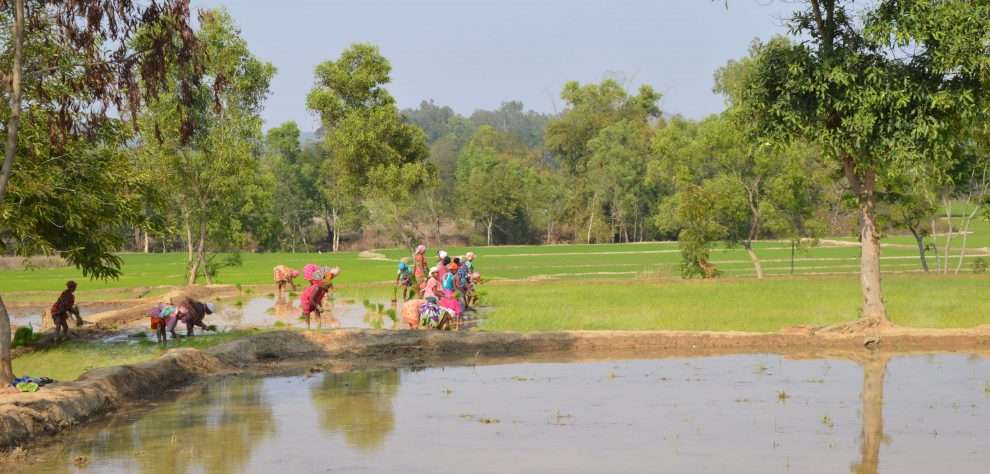

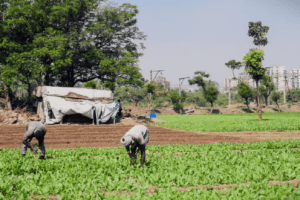

Add Comment